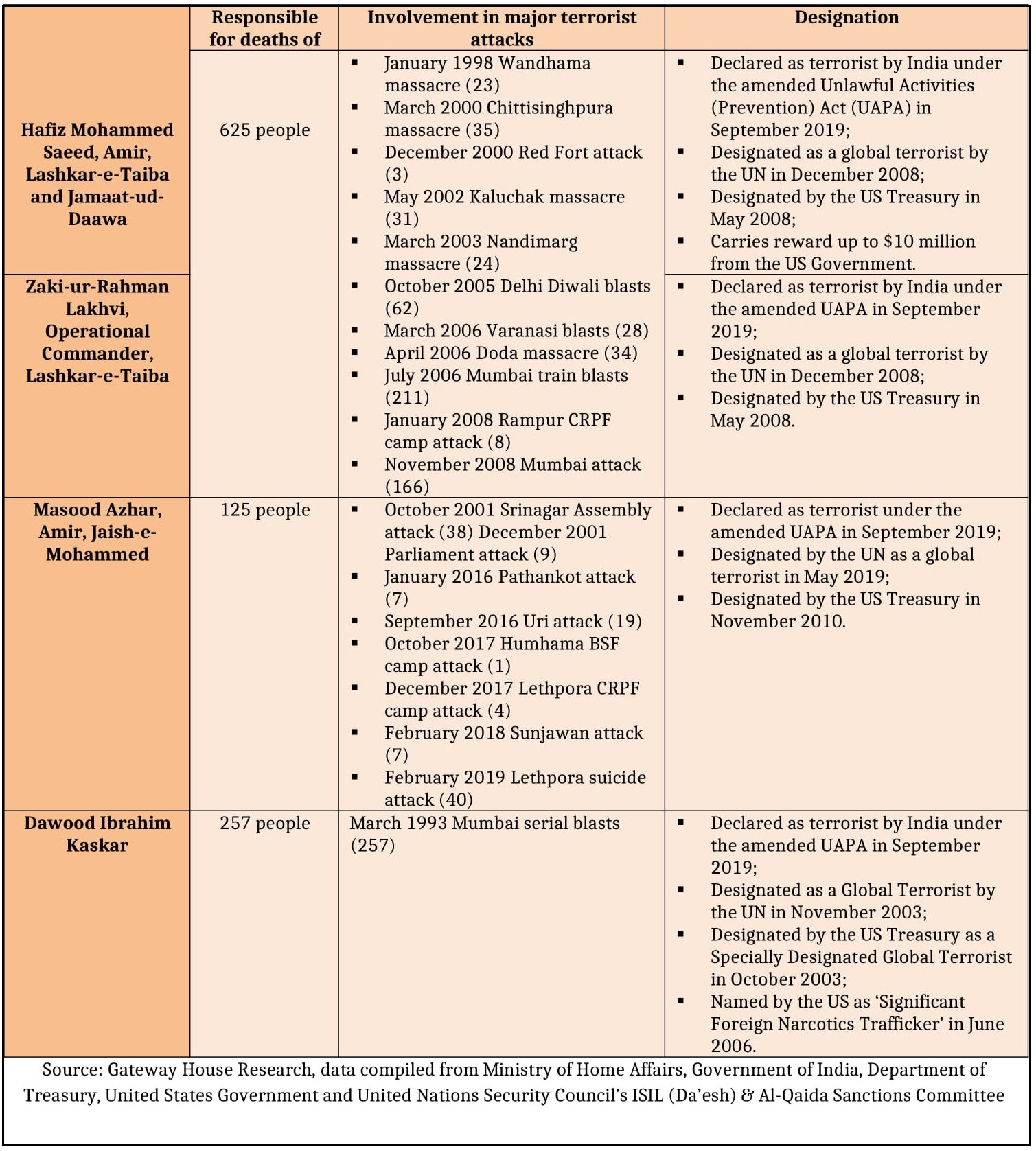On August 18, the government of Pakistan announced a series of restrictions on key terrorists sheltered in the country. Prominent among these are Hafiz Saeed and Zaki-ur-Rahman Lakhhvi, two top leaders of the Lashkar-e-Taiba, Masood Azhar, head of the Jaish-e-Mohammed and Dawood Ibrahim, the underworld don. The four are together responsible for most of the terrorist violence in India since the early 1990s, and the deaths of hundreds of Indian citizens. The restrictions announced by Pakistan include a ban on travel, financial transactions and arms purchases, freezing of bank accounts and seizure of their all movable and immovable properties.
While these restrictions are wide-ranging, the key as always remains Pakistan’s sincerity in implementing these restrictions. In the past, whenever there has been intense global scrutiny of Pakistan’s terrorist infrastructure, Islamabad has found a way to wriggle out of its compliance by maintaining the façade of a crackdown against the terrorist groups it has patronised. However, once the global pressure eases, it’s back to business as usual with the terrorist groups resuming their activities with impunity and protection from Rawalpindi.
This time will be no different. Pakistan may have implemented these restrictions to ease itself out of the grey-list it has been put on by the Financial Action Task Force, the Paris-based anti-money laundering watchdog.
It remains to be seen whether these restrictions are long-term in nature. Early indications are that this may be a tactical action. Just days after the restrictions were announced, a Taliban delegation led by Mullah Abdul Ghani Baradar, a prominent Afghan leader who is on the list of banned terrorist leaders, arrived in Islamabad for talks with Pakistani leaders to discuss the Afghan peace process. The invitation to Baradar shows that Islamabad is more interested in protecting its political interests, rather than cracking down on terror, and the same will apply in case of the banned anti-India terrorist leaders.

Sameer Patil is Fellow, International Security Studies Programme, Gateway House.
This blog was exclusively created for Gateway House: Indian Council on Global Relations. You can read more exclusive content here.
For interview requests with the author, or for permission to republish, please contact outreach@gatewayhouse.in
© Copyright 2020 Gateway House: Indian Council on Global Relations. All rights reserved. Any unauthorized copying or reproduction is strictly prohibited.


